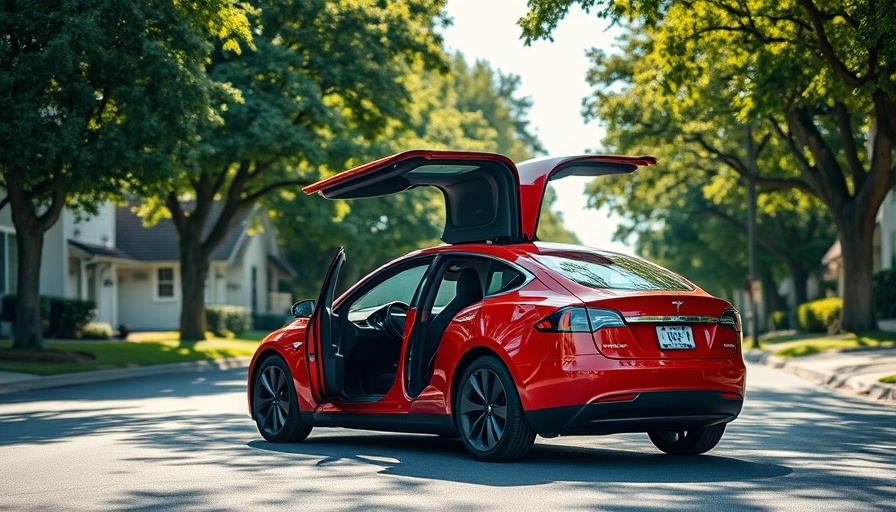
Elon Musk's Robotaxi Service Launches in Austin
In an ambitious move, Elon Musk has rolled out the first test of Tesla's highly anticipated robotaxi service in Austin, Texas. The initial phase began with a fleet of only 10 to 12 self-driving Teslas, charging customers a flat fee of $4.20 for rides. This launch follows years of promises that have often been met with skepticism, as Musk previously claimed that driverless taxis would be operating on the roads 'next year.' Now, it seems he is finally taking a significant step towards making that vision a reality.
Challenges on the Road Ahead
While Musk's enthusiasm remains unabated, notable challenges lie ahead. Competing companies, such as Waymo, have already made significant inroads into the autonomous vehicle market, completing their 10 millionth paid ride as they have deployed ridesharing services in various cities. Meanwhile, Tesla’s reputation has faced strains due to controversies surrounding Musk's remarks and the political boycotts that have affected sales. Investors and analysts are watching closely—will Musk's next moves be as lucrative as they have been in the past, or is the road becoming bumpier?
Market Impact and Future Trends
The success of the Tesla robotaxi initiative could signal a paradigm shift in the tech industry. As autonomous vehicles become more mainstream, discussions about sustainability, urban transportation, and business innovation are likely to intensify. With a focused rollout in Austin and plans for rapid expansion, Tesla could potentially reshape the future of urban mobility.
Final Thoughts: Why This Matters for Business Professionals
For business professionals, the implications of Tesla's developments are vast. Understanding how companies adapt to technological advancements can offer valuable insights into market trends and consumer behavior. Additionally, opportunities for investment in sustainability and green business practices may arise as the demand for such services grows. Observing Tesla’s approach could inform regional strategies for local startups and established businesses navigating the evolving landscape of transportation technology.
As the robotaxi pilot program takes off, all eyes will be on the data that emerges from this endeavor. For those in the business sector, from venture capitalists to local entrepreneurs, it’s essential to keep an eye on how this initiative unfolds. Will it inspire new commercial real estate developments, increase demand for sustainable business practices, or influence tech company strategies? The answers may redefine the Bay Area business landscape and beyond.
 Add Row
Add Row  Add
Add 



Write A Comment